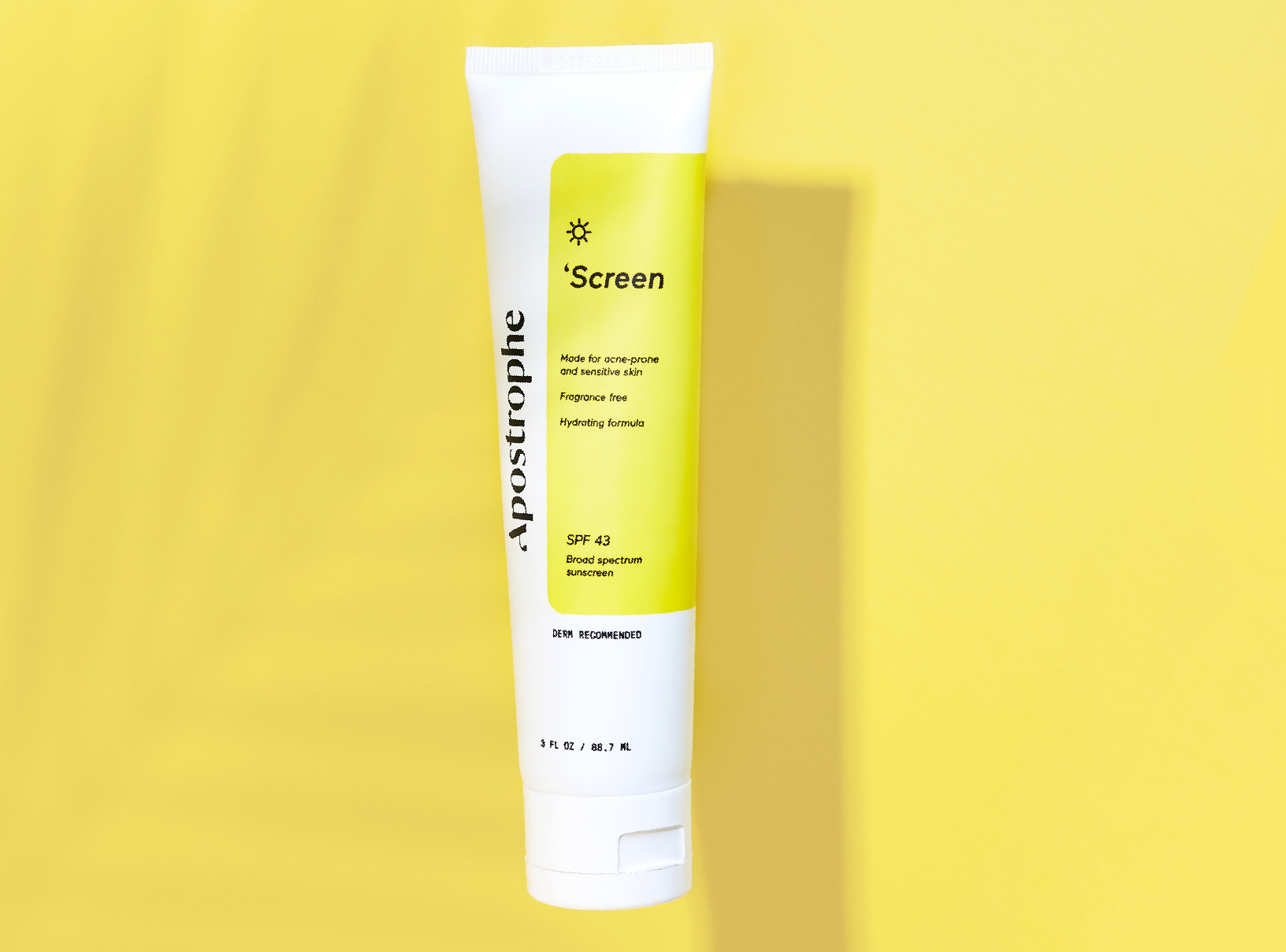Education
How to stop acne breakouts
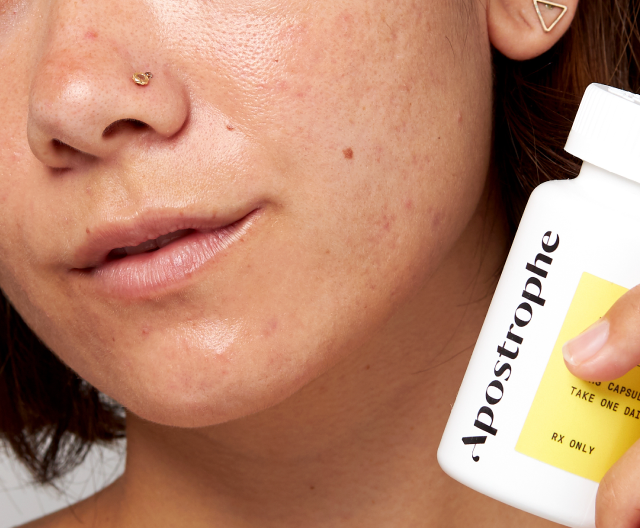
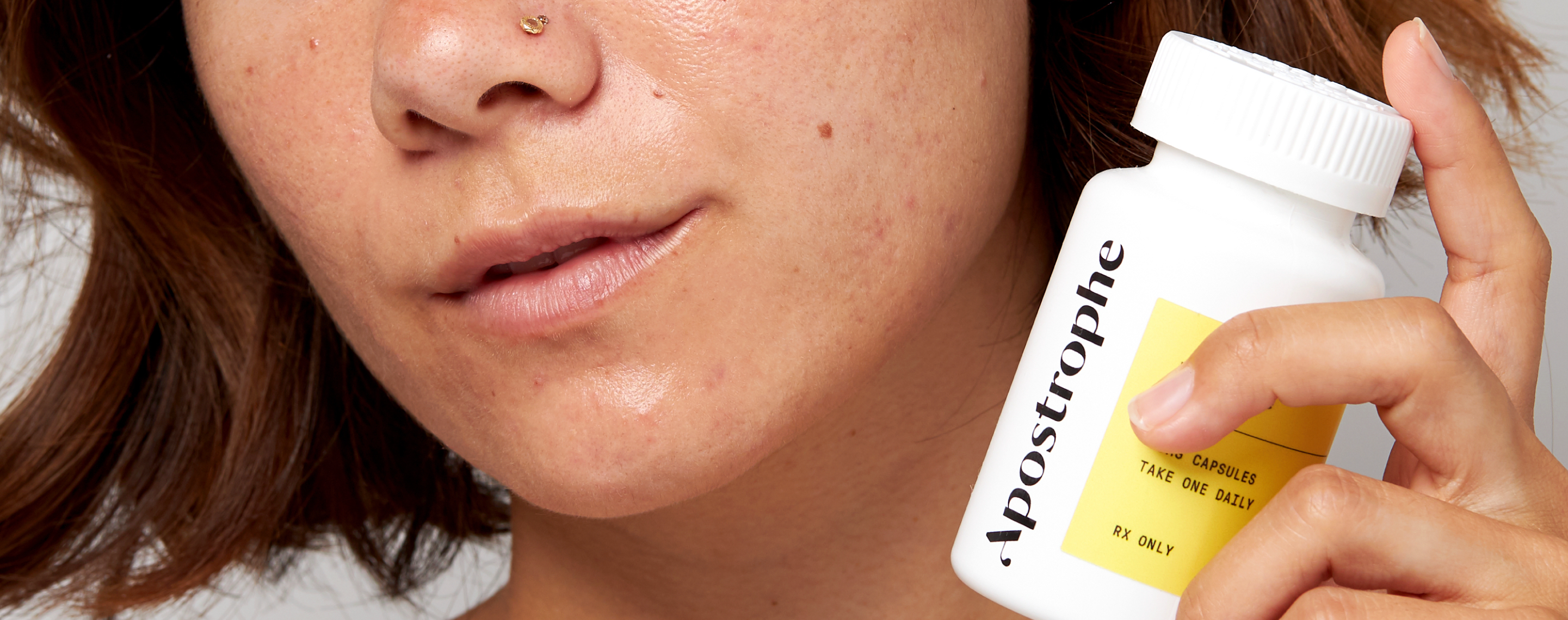
SHARE
Education
How to stop acne breakouts
Medically reviewed by Kristin Hall, FNP
Written by Apostrophe Team
Last updated 4/1/2024
Acne breakouts can be a serious annoyance, especially when they’re severe, persistent, or just prone to developing at the worst moments.
Just about everyone deals with acne breakouts at some point in life. In fact, research published in the journal Archives of Dermatology notes that 79 percent and 95 percent of people deal with acne at some time during adolescence, with 40 percent to 54 percent continuing to get acne as adults.
Although acne breakouts can be frustrating to deal with, they’re almost always treatable with the right combination of habits, skin care products, and, in some cases, medication.
Below, we’ve explained how and why acne breakouts develop, as well as the different types of acne lesions you may notice during breakouts.
We’ve also shared 15 proven, science-backed tips that you can use to stop acne breakouts from affecting your skin.
Why Do Acne Breakouts Occur?
All acne, whether it’s a tiny blackhead or a large, inflamed cystic acne lesion, develops through the same basic process.
Acne lesions form when your hair follicles, or pores, become clogged. Several substances can clog your pores, but the biggest two are sebum and dead skin cells.
Sebum is an oil that’s secreted by your sebaceous glands. It’s important for sealing in moisture and protecting your skin from infection.
When your sebaceous glands produce too much sebum, it can build up on the surface layer of your skin and clog your pores, contributing to acne breakouts.
Dead skin cells, on the other hand, are produced as a byproduct of your skin’s natural process for repairing, renewing, and maintaining itself.
Every 40 days to 56 days, your skin completes a process referred to as epidermal turnover, in which old, damaged skin cells are replaced by new ones.
As these old cells are replaced, they form a layer of dead, cornified skin cells. Although most of these cells are shed naturally, some cells can mix with excess sebum and contribute to blocked pores and acne breakouts.
Many acne lesions are small, mild, and painless. However, when the bacteria that grow on your skin become stuck inside a clogged pore, they can multiply rapidly and cause the acne lesion to become infected, inflamed, and painful.
Most acne breakouts involve one or several of the following types of acne:
Comedonal acne. These are small, non-inflammatory acne lesions, such as blackheads and whiteheads.
Inflammatory acne. These are larger, infected, inflamed and/or tender lesions, such as acne pustules and papules.
Nodular and/or cystic acne. These are severe acne lesions that form deeper inside the skin. They’re often painful and difficult to treat.
Our guide to the types of acne provides more information about how different forms of acne can develop on your skin.
Behind the scenes, several different factors can contribute to acne breakouts. These include:
Genetic factors
Hormone levels
Medications, including hormonal birth control
Diseases and conditions that affect your endocrine system
Habits and behaviors, such as smoking
Stress
These factors can affect your sebum production, skin cell turnover, and general health, causing acne breakouts. We’ve discussed these root causes more in our guide to the causes of acne.
15 Ways to Stop Acne Breakouts
Since acne is caused by a variety of factors, there’s no one step that you can take to stop acne breakouts for good.
However, it’s almost always possible to get rid of acne breakouts with a mix of over-the-counter products, skin-friendly habits, and, if necessary, acne medication.
We’ve shared 15 actionable, science-based tips below that you can use to treat acne breakouts and enjoy clearer skin.
Wash Your Face With a Skin-Friendly Cleanser
One of the most effective ways to stop and prevent acne breakouts is to wash your skin with a gentle cleanser.
Cleansers are designed to remove dirt, oil, dead skin cells, and other substances that can clog your pores and cause acne breakouts.
When it comes to cleansers, active ingredients are more important than brand names. If you’re prone to regular breakouts, look for ingredients like salicylic acid or benzoyl peroxide, which are both great for controlling mild to moderate acne.
If you have sensitive or dry skin, look for a facial cleanser that’s formulated to be gentle on your skin.
Avoid Oily Makeup and Skin Care Products
Many cosmetics and skin care products are formulated using oils and other ingredients that can clog your pores and make acne breakouts worse.
If you’re prone to breakouts, try to replace your cosmetics and skin care products with ones that are designed to prevent acne.
You can find these products by looking for terms like “non-comedogenic,” “oil-free” or “won’t clog pores” on product packaging and labels.
Regardless of the type of makeup you use, it’s important to clean away cosmetics before you go to sleep. Use a non-comedogenic wipe or makeup remover, then make sure that you’ve totally removed makeup in any areas that are prone to breakouts.
Clean Your Skin Twice a Day, Plus After Workouts
Try to wash your skin twice per day — once in the morning, then once before bed. It’s also best to wash your skin after you exercise to remove excess sweat, which can make acne breakouts worse.
When you wash your skin, use your fingertips to apply cleanser or other treatments. Make sure not to scrub your skin or overuse acne treatments, as this can cause irritation and may result in more severe or frequent breakouts.
Once you’re finished washing, pat your skin dry and apply moisturizer or any topical treatments for acne.
Worried you’re washing your skin the wrong way? Our guide to washing your face explains the best way to wash to prevent irritation and stop acne breakouts.
Use an Over-the-Counter Retinoid
Retinoids are medications derived from vitamin A. They’re described as a “mainstay” of therapy for acne and work by preventing blocked pores from developing.
If you’re prone to acne breakouts, applying a retinoid to your skin is a great way to stop pimples from developing and gradually clear your skin.
While more powerful retinoids require a prescription, the topical retinoid adapalene is available in a low-strength over the counter in many skin care creams and in acne spot treatments, such as Differin® gel.
Retinoids take a few months to work, but their results can be significant, especially if you have comedonal acne such as whiteheads or blackheads.
Consider Prescription Treatments, Such as Tretinoin
While adapalene is a great choice for mild acne, if you have moderate or persistent acne, you’ll likely get the best results from a prescription retinoid such as tretinoin.
Tretinoin is one of the most popular, widely-used, and well-studied acne medications. It works by peeling away dead skin cells and unclogging the blocked pores that cause acne breakouts.

PRESCRIPTION TRETINOIN
Target acne, dark spots, and signs of aging with this science-backed ingredient.
Numerous studies have found that tretinoin gets rid of acne, especially when it’s used with other acne treatments, such as benzoyl peroxide.
Tretinoin is one of several active ingredients in Apostrophe topical treatments, which is customized to address your specific skin concerns.
Never, Ever Pop Pimples on Your Own
Popping pimples may seem like a good idea, but it can actually make your breakouts worse and increase your risk of developing acne scars.
When you try to pop an acne lesion, it’s easy to accidentally push the contents deeper into your skin.
There’s also a real risk of spreading bacteria from your hands, which may cause your acne to become infected, inflamed, and painful.
If you have troublesome acne, it’s always better to treat it with topical products than to pop it by yourself.
When you need to touch a pimple to apply cleanser, cream, or a spot treatment, make sure that you wash your hands first to remove any bacteria.
Avoid Eating Too Many High-GI Foods
There are lots of food-related myths about acne. For example, despite popular belief, there’s no substantial scientific evidence that oily foods contribute to oily skin or acne breakouts.
However, researchers have identified several foods that may cause or worsen acne breakouts, including cow’s milk and high glycemic index foods (foods high in simple carbohydrates), such as white bread, rice, potato chips, doughnuts, and sugary snacks.
Currently, experts think that the link is likely due to inflammation. By suddenly increasing your blood sugar levels, these foods may promote inflammation throughout your body and trigger an increase in sebum production.
For clearer skin, try limiting your intake of high-GI foods by replacing the items above with fresh vegetables, low-sugar fruits, complex carbohydrates, and lean sources of protein.
Keep Your Hair Clean
Just like your face, your scalp and hair can become oily. When your hair comes into contact with your face, this oil can clog your pores and potentially cause acne breakouts.
To avoid acne around your forehead and hairline, make sure to wash your hair when it begins to feel oily.
Make sure to opt for a non-comedogenic shampoo, conditioner, and other hair products, as these are less likely to contain oils and other ingredients that may cause acne.
For Inflamed Acne, Consider Using an Antibiotic
While retinoids and cleansers are great for combating oily skin or the buildup of dead skin cells, they aren’t always effective at combating acne-causing bacteria.
If you’re prone to inflamed and infected acne, you may want to use a topical antibiotic to prevent bacteria from growing on your skin and inside clogged pores.
One of the most common topical antibiotics for treating acne is clindamycin.
If you get severe acne breakouts, your healthcare provider may prescribe oral antibiotics, such as doxycycline, minocycline, amoxicillin, or erythromycin. You may need to use medication for several months to clear your skin and get your acne breakouts under control.
Our guide to antibiotics for acne discusses how these medications work to stop acne breakouts, as well as the effects that they can have on your skin.
If You Have Dry Skin, Use a Lightweight Moisturizer
Moisturizer helps to trap water in your skin, improving its appearance and ensuring that it’s able to function as a protective barrier.
While moisturizer doesn’t directly fight acne breakouts, it’s important to use one if you have dry skin, or if you use acne treatments that cause dryness and irritation, such as benzoyl peroxide, salicylic acid, or a topical retinoid such as tretinoin.
Using a moisturizer can also help to control sebum production, as your body often reacts to dry skin by producing more oil.
Protect Your Skin From Sun Exposure
Despite what you may have read, sunlight doesn’t cure acne. In fact, spending too much time in the sun can harm your skin, all while darkening acne lesions and increasing the amount of time that’s required for your skin to clear.
When you’re outdoors, apply non-comedogenic sunscreen to shield your skin from UV radiation and damage.
This is particularly important if you use topical acne medications, which can often make your skin more sensitive to UV radiation.
If You Smoke, Try Your Hardest to Kick the Habit
In addition to affecting your cardiovascular health and risk of developing cancer, research shows that smoking is closely correlated with an increased risk of acne.
In a 2009 study published in the journal Dermato Endocrinology, researchers compared the rate of adult acne amongst female smokers and non-smokers.
They found a direct correlation between smoking and acne, specifically non-inflammatory forms of acne such as blackheads and whiteheads.
If you smoke, try to quit. Not only is quitting good for your skin, but it also offers numerous other benefits for your health and wellbeing.
Use the Birth Control Pill to Control Breakouts
Although the birth control pill might not be the first thing to come to mind when you think of acne treatments, research shows that it’s often effective at treating and preventing acne breakouts.
In fact, the FDA has approved three birth control pills — Yaz®, Estrostep® and Ortho Tri-Cyclen®, as well as their generic equivalents — as acne treatments.
These are all combination pills, meaning they contain ethinyl estradiol (a form of estrogen) and a progestin hormone.
The pill is often especially effective for hormonal acne breakouts that flare up before and during your period.
Be Patient With New Acne Treatments
Whether you use benzoyl peroxide, salicylic acid, antibiotics, a topical retinoid or hormonal birth control to treat acne, it’s important to be patient with your acne treatment.
Acne takes time to disappear, meaning you won’t notice clear skin overnight even with the most effective acne treatment routine.
If you’ve started a new acne treatment, continue using it for six to eight weeks before assessing your results.
Remember that improvements are gradual and that it might take several months before you’re able to see any large improvements in your skin’s clarity, tone, and texture.
If you’re prescribed medication to treat acne, it’s best to talk to your healthcare provider before making any changes to your routine.
If Your Acne is Severe, Talk to a Dermatologist
Finally, if your acne is severe, it’s always best to schedule an appointment with a dermatologist to work out the best treatment method.
A dermatologist can look at your skin and suggest the most effective medication, procedure, or other treatment to get your breakouts under control.
Dermatologists also specialize in treating and preventing acne scars, as well as removing acne lesions that are too large or deep for conventional treatments.
You can find a dermatologist by searching locally, or by asking your primary care provider for a referral.
Stopping Acne Breakouts
Acne is a common issue that affects just about everyone at some point in life, whether it’s a few small comedones or persistent, painful inflammatory acne.
The good news is that just about every case of acne, from mild to severe, can be treated with a combination of good skin care habits, medication, and plenty of patience.
Ready to start treating acne? Through Apostrophe, you can get connected with an expert derm team who will craft a custom treatment plan for your acne.
References
Cordain, L., et al. (2002, December). Acne Vulgaris A Disease of Western Civilization. Archives of Dermatology. 138 (12), 1584-1590. Retrieved from https://jamanetwork.com/journals/jamadermatology/fullarticle/479093
Hoover, E., Aslam, S. & Krishnamurthy, K. (2020, October 26). Physiology, Sebaceous Glands. StatPearls. Retrieved from https://www.ncbi.nlm.nih.gov/books/NBK499819/
Koster, M.I. (2009, July). Making an epidermis. Annals of the New York Academy of Sciences. 1170, 7–10. Retrieved from https://www.ncbi.nlm.nih.gov/pmc/articles/PMC2861991/
Acne. (n.d.). Retrieved from https://www.americanskin.org/resource/acne.php
Salicylic Acid Topical. (2016, September 15). Retrieved from https://medlineplus.gov/druginfo/meds/a607072.html
Benzoyl Peroxide Topical. (2015, August 15). Retrieved from https://medlineplus.gov/druginfo/meds/a601026.html
10 Skin Care Habits That Can Worsen Acne. (n.d.). Retrieved from https://www.aad.org/public/diseases/acne/skin-care/habits-stop
Acne: Tips for Managing. (n.d.). Retrieved from https://www.aad.org/public/diseases/acne/skin-care/tips
Leyden, J., Stein-Gold, L. & Weiss, J. (2017, September). Why Topical Retinoids Are Mainstay of Therapy for Acne. Dermatology and Therapy. 7 (3), 293–304. Retrieved from https://www.ncbi.nlm.nih.gov/pmc/articles/PMC5574737/
Tretinoin Topical. (2019, March 15). Retrieved from https://medlineplus.gov/druginfo/meds/a682437.html
Thielitz, A., Abdel-Naser, M.B., Fluhr, J.W., Zouboulis, C.C. & Gollnick, H. (2008, December). Topical retinoids in acne – an evidence-based overview. Journal of the German Society of Dermatology. 6 (12), 1023-1031. Retrieved from https://onlinelibrary.wiley.com/doi/full/10.1111/j.1610-0387.2008.06741.x
Pimple Popping: Why Only a Dermatologist Should Do It. (n.d.). Retrieved from https://www.aad.org/public/diseases/acne/skin-care/popping
Can The Right Diet Get Rid of Acne? (n.d.). Retrieved from https://www.aad.org/public/diseases/acne/causes/diet
Are Your Hair Care Products Causing Breakouts? (n.d.). Retrieved from https://www.aad.org/public/diseases/acne/causes/hair-products
Sutaria, A.H., Masood, S. & Schlesinger, J. (2020, August 8). Acne Vulgaris. StatPearls. Retrieved from https://www.ncbi.nlm.nih.gov/books/NBK459173/
Moisturizer: Why You May Need it if You Have Acne. (n.d.). Retrieved from https://www.aad.org/public/diseases/acne/skin-care/moisturizer
Back Acne: How to See Clearer Skin. (n.d.). Retrieved from https://www.aad.org/public/diseases/acne/DIY/back-acne
Capitanio, B., et al. (2009, May-June). Acne and smoking. Dermato Endocrinology. 1 (3), 129–135. Retrieved from https://www.ncbi.nlm.nih.gov/pmc/articles/PMC2835905/
Shop this post
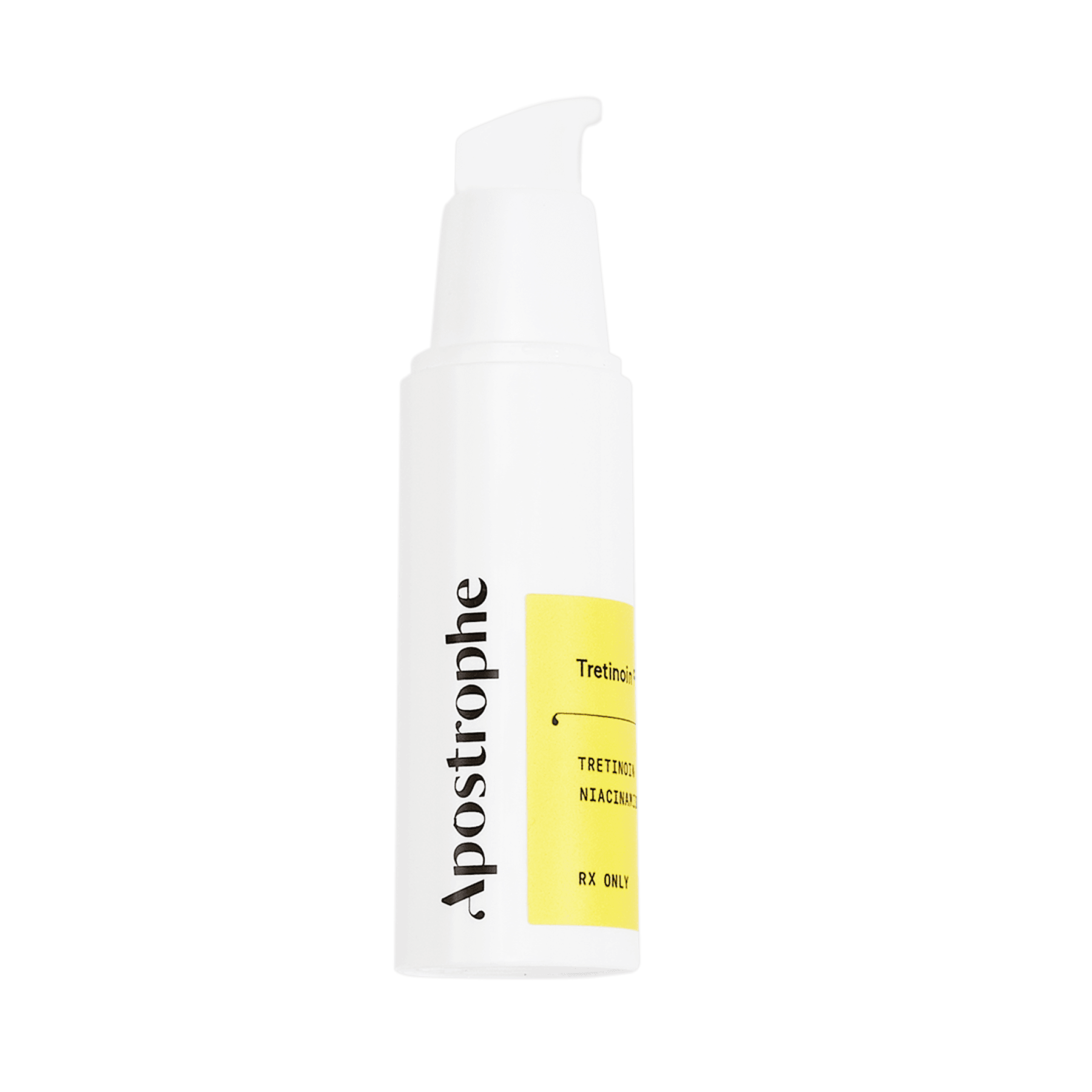
Tretinoin

Clindamycin
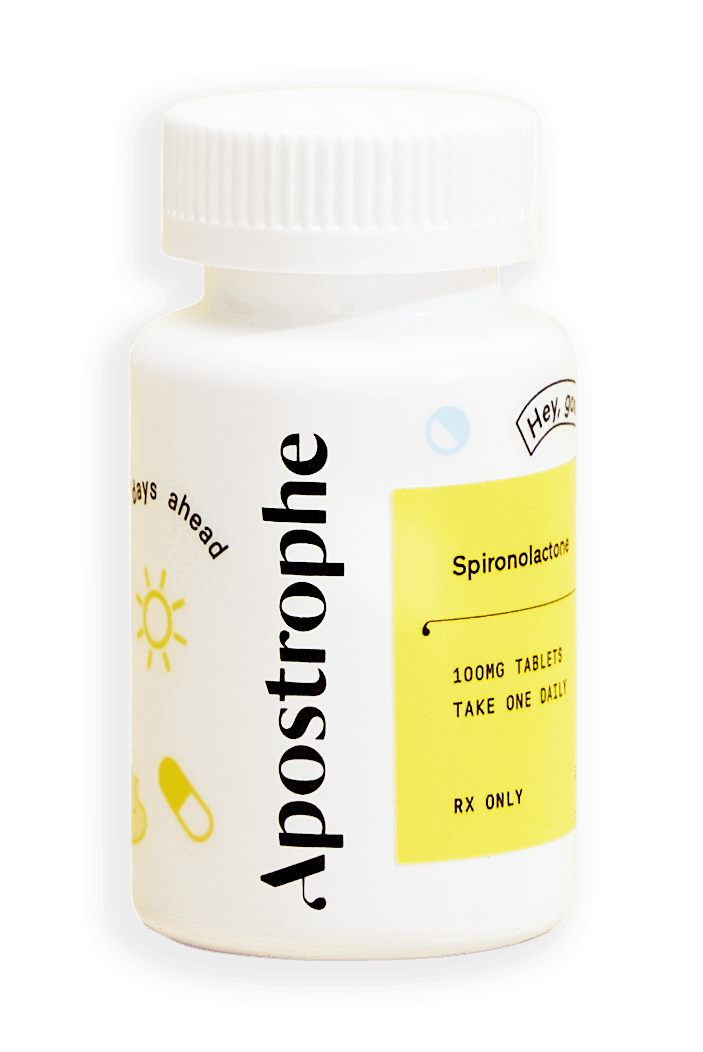
Oral doxycycline
Like what you just read? Sign up for our email list to get the scoop on skincare science delivered straight to your inbox.

Education
What is milia?
What is milia? Today, we’re jumping into one type of bump that you may have heard about most commonly in infants — milia.
Read More
Education
Best moisturizer for acne-prone skin
If you have combination acne-prone skin, figuring out which moisturizer is best for your skin might be tough. In this guide, we break down the best moisturizer for combination, acne-prone skin.
Read More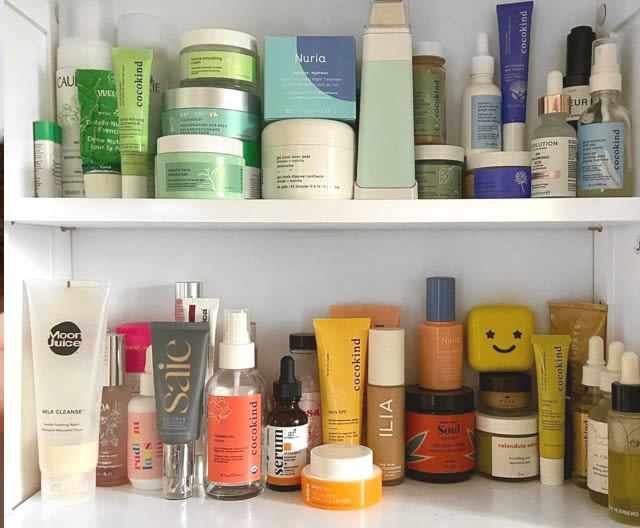
Education
How to build a face care routine
As you get into skincare, it might seem overwhelming, especially trying to figure out the order you're supposed to apply products in. Below, we detail how to build a face care routine for your skin!
Read More
